In the pantheon of modern French gastronomy, Alain Passard cuts a singular figure, a chef once acclaimed for roast meats who is now redefining haute cuisine with an “almost vegan” menu.
L’Arpège, his restaurant opposite the Musée Rodin in Paris’s chic seventh arrondissement, is the first in France with three Michelin stars to banish meat, fish and cream sauces — traditionally the jewels in the crown of fine dining à la française.
“If I had done this 10 years ago, it would have been too early,” the 68-year-old chef told The Times in his office-cum-art gallery, which features his own paintings, most of which are inspired by his cuisine.
“People in France weren’t ready to forgo meat completely then, and neither was I.”
He now serves only dishes cooked with seasonal vegetables from his own farms, except for honey from his beehives and vegan dairy alternatives such as almond milk or soy cream.
Passard has paved the way for the change by gradually phasing out animal products during the past 25 years.
His first step was to stop serving red meat in the early 2000s. That caused jaws to drop in the exclusive world of Parisian gourmet cuisine, although he continued to serve poultry and fish, albeit in smaller quantities than before.
At the time, vegetarianism tended to be laughed off as a fad in a nation fond of snails and steak frites. Some regarded it as an affront to classic French dishes such as bœuf bourguignon, magret de canard or coq au vin.
“Today the French still tend to feel that plant-based food is not their natural cuisine, but the number of vegetarians and vegans is increasing, and even people who love côte de bœuf [prime rib of beef] are curious to see what we can do with vegetables,” he said.
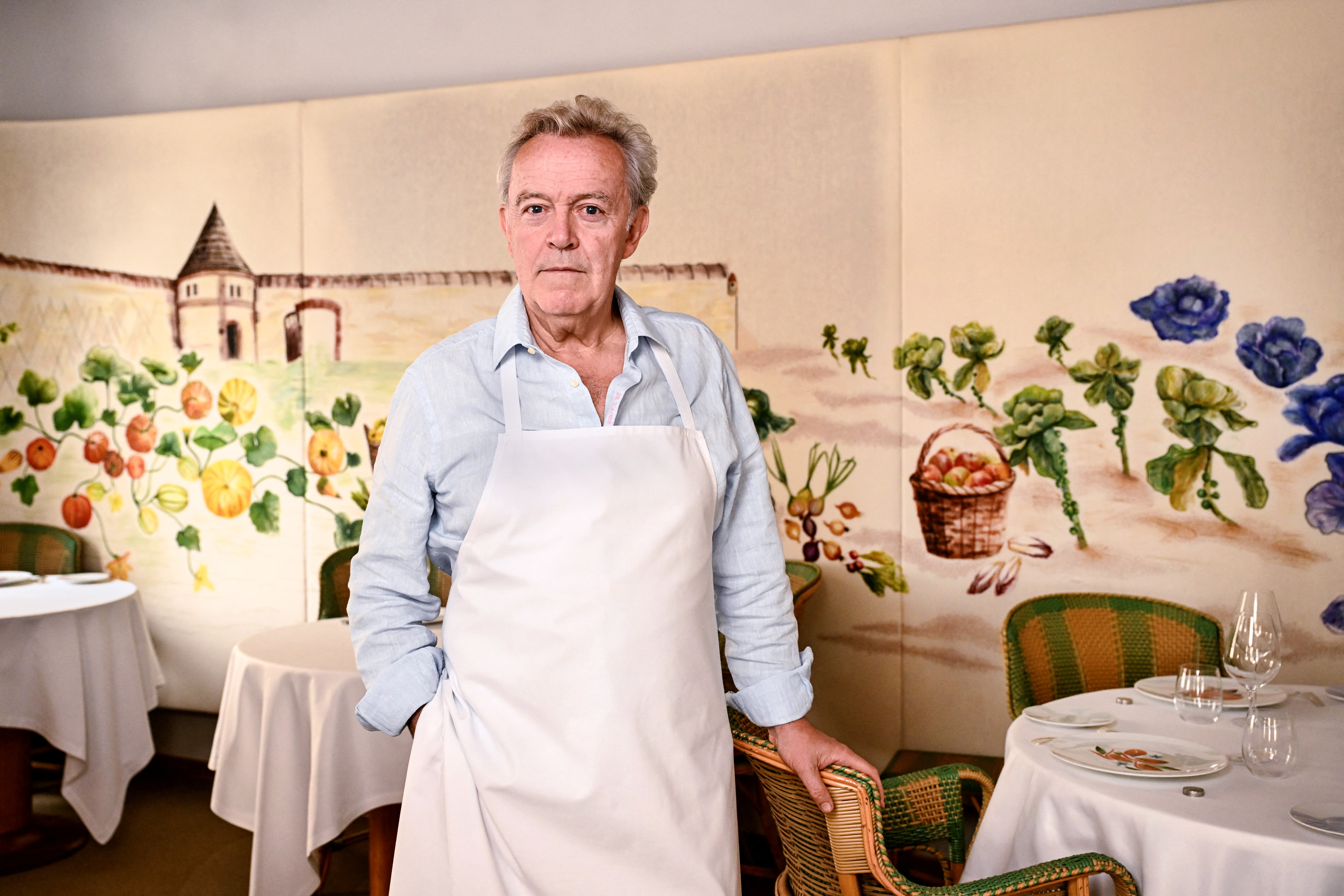
Passard, who is from Brittany, learned to cook with butter but is now “ready for something different”
BERTRAND GUAY/AFP/GETTY IMAGES
When he first dropped red meat, critics predicted that L’Arpège would lose the three stars it won as a rotisserie in 1996, but he has proved them wrong. In a further sign that French tastes and food habits are changing, his latest decision to stop serving poultry, fish and dairy is getting a very different reception.
It has even been welcomed by the august Michelin Guide, a 125-year-old institution sometimes criticised for being hidebound.
“I no longer feel the need to eat meat,” said Passard. “I’m from Brittany so I learned to cook with butter and I made my name cooking meat, but I was ready for something different. Achieving excellence with meat is more straightforward. You have to put a lot of love and passion into cooking with vegetables. It’s an art form like poetry or painting.”
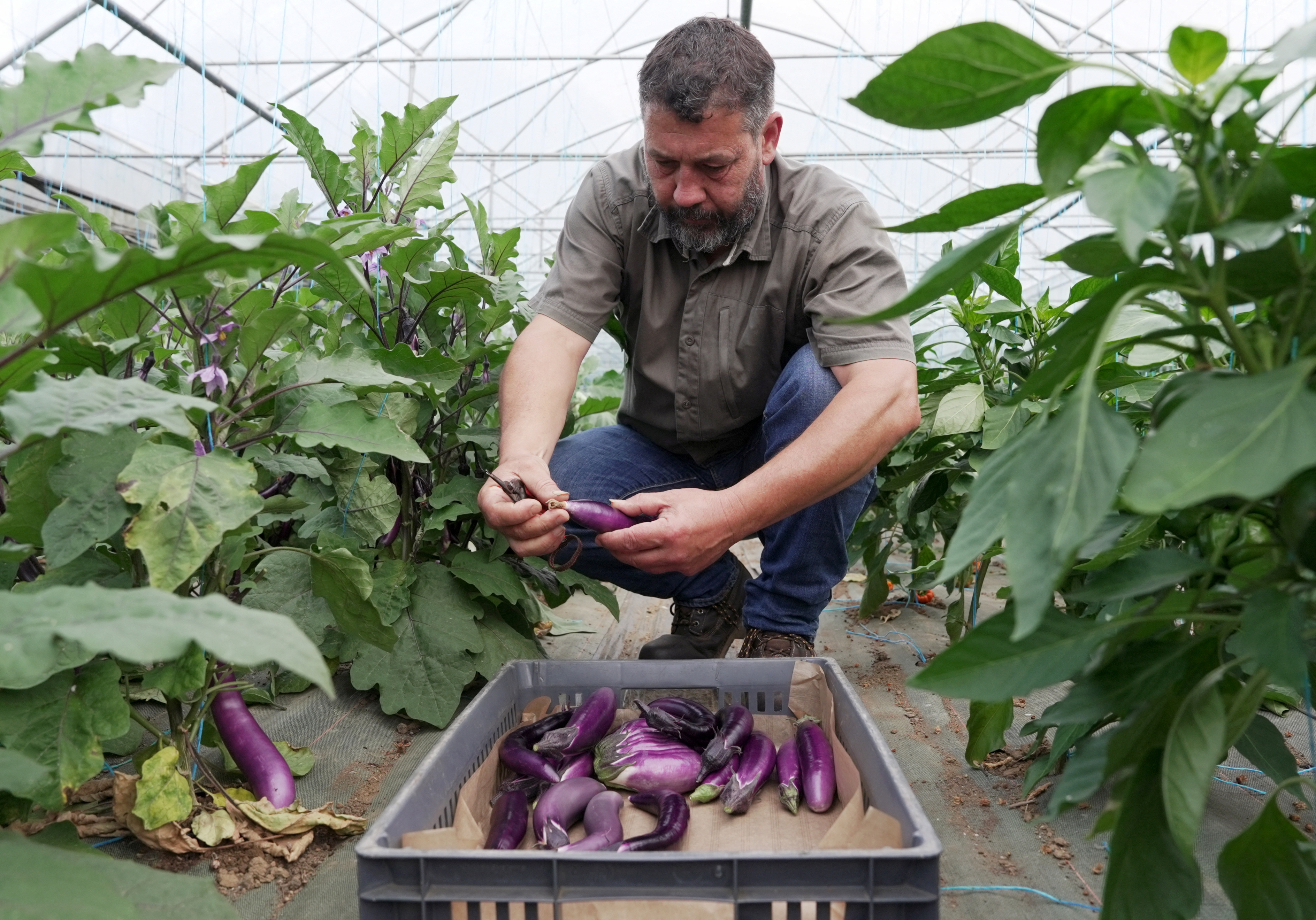
The chef-gardener Sylvain Picard harvests Japanese aubergines in Passard’s vegetable garden
NOEMIE OLIVE/REUTERS
The turning point for Passard was mad cow disease in the 1990s. “That was the trigger. I started thinking, what can we do that’s better for the environment and better for our health,” he said.
At L’Arpège, even the humble cabbage is presented with the flourish of a state banquet.
Before a dish of aubergine caviar with black olive tapenade and a saffron-tomato emulsion, diners are presented with a whole chargrilled aubergine, which is then returned to the kitchen for the flesh to be scooped out and prepared.
“My mission is to revive seasonal cooking,” Passard said. “It’s wrong to have tomatoes in January. They’re a summer food that cools you down. In winter you need leeks to warm you up. Out-of season vegetables grown in greenhouses are tasteless.”
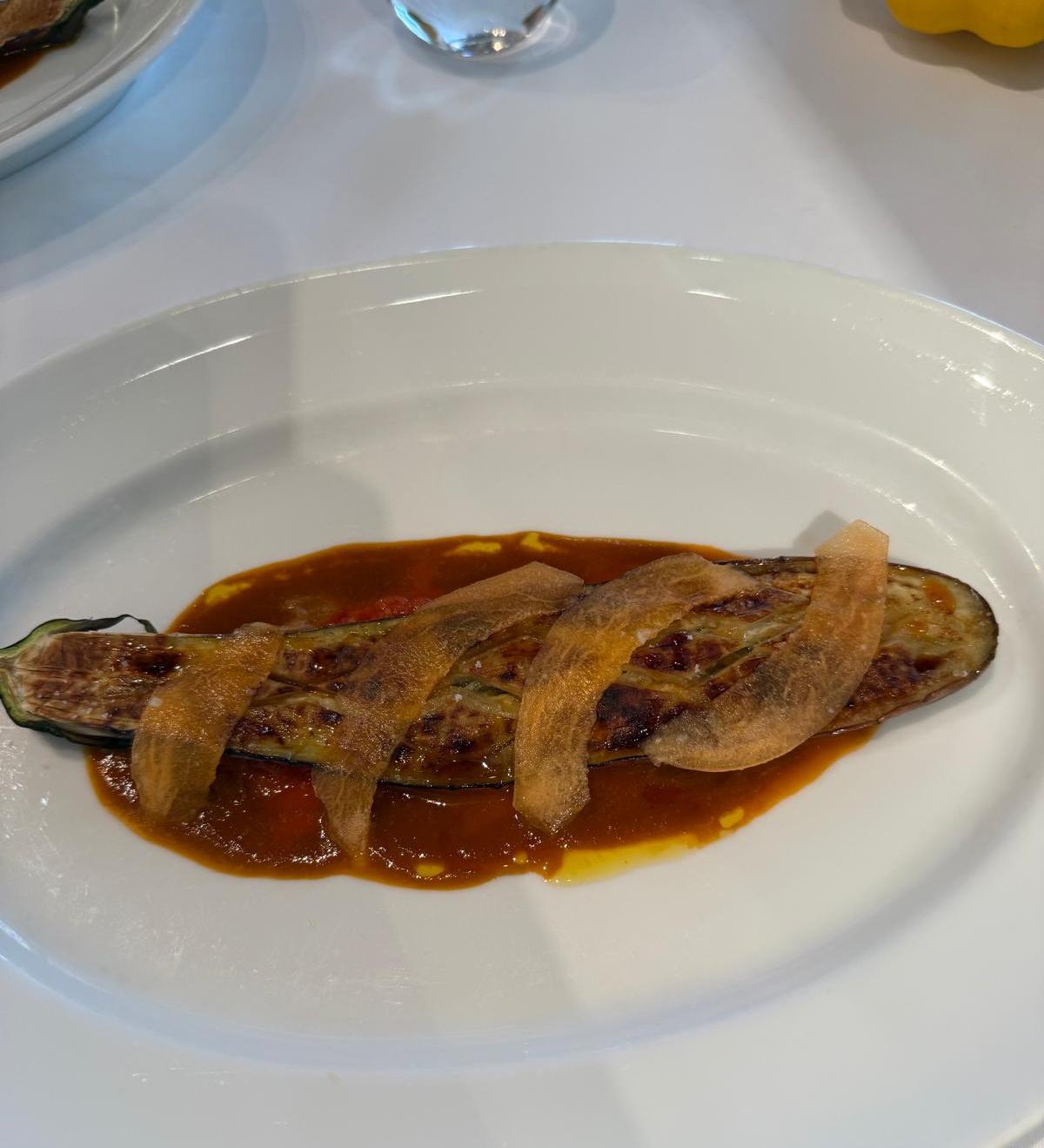
Roast aubergine at L’Arpège and, below, aubergine caviar
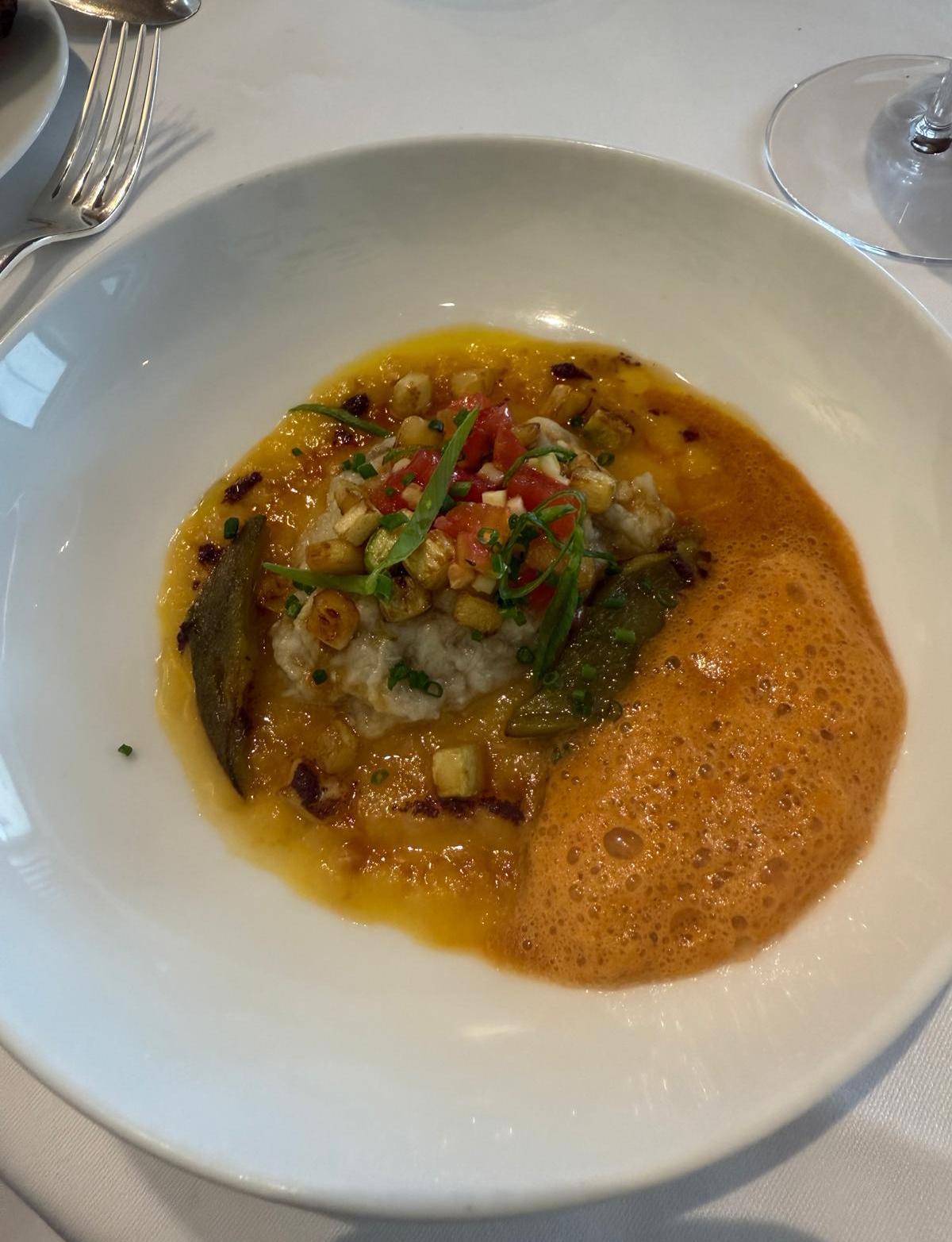
Passard displayed the enthusiasm of a much younger man, relishing the challenge of devising a completely new menu for each season’s ingredients. “When you’re cooking meat, it’s always the same,” he said.
However, maintaining excellence without meat, fish or dairy is “a colossal task”, said Claire Vallée, a chef whose vegan restaurant in southwest France won a Michelin star in 2021 but closed down a year later. Since then, no other vegan French restaurant has been awarded a star.
• Tony Turnbull: Michelin-star vegan: is it worth £90?
Few customers at L’Arpège when The Times visited were vegetarian or vegan, but they were eager to see how one of France’s most renowned chefs cooked vegetables.
Some reviewers have complained that his insistence on fresh seasonal produce means some ingredients are repeated in different dishes. In an 11-course tasting menu, tomatoes, aubergines and courgettes figured in several courses.
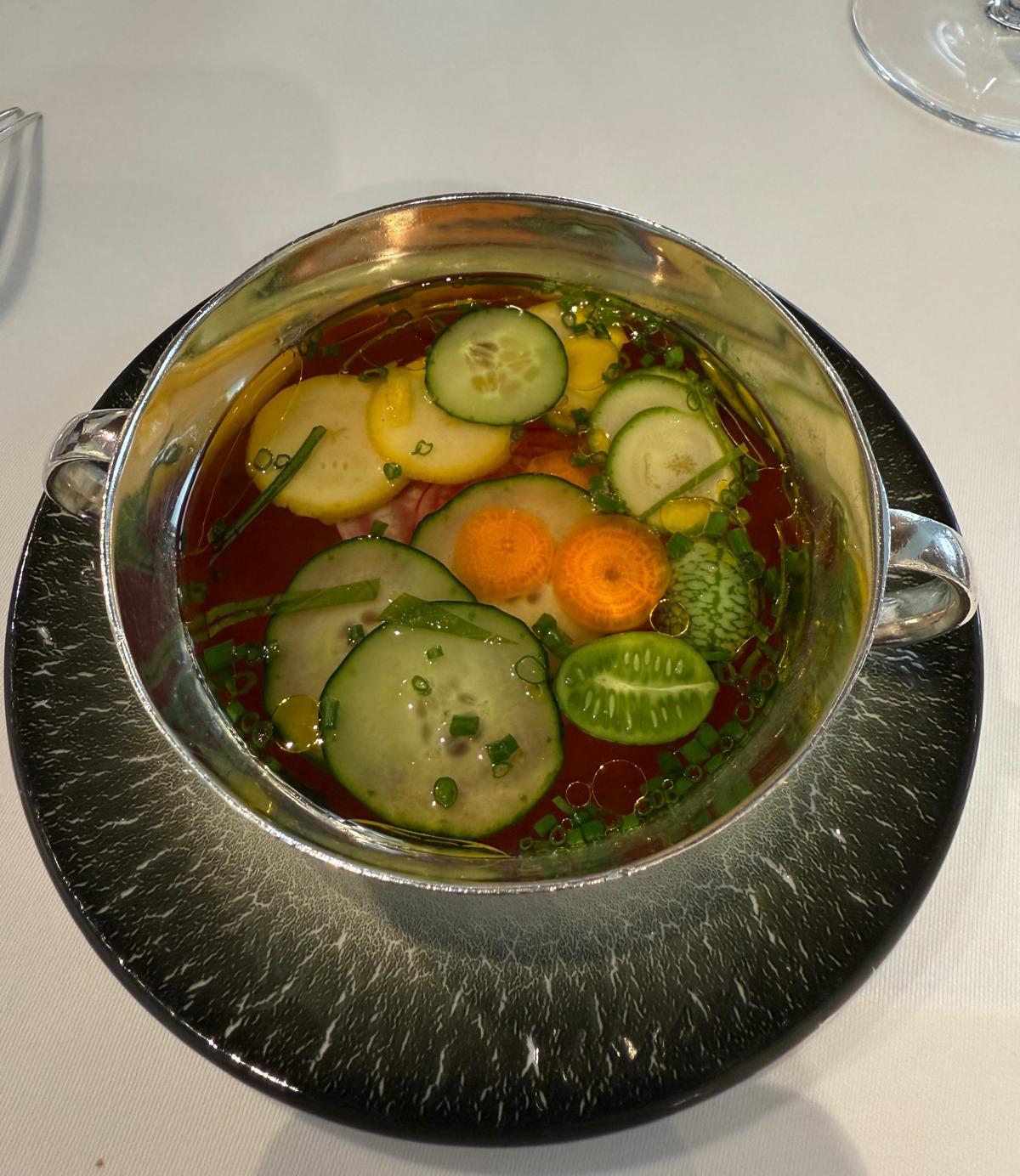
Vegetable consommé with courgettes
“Despite that, each course tastes very different,” said Michael Zambenedetti, 38, a French businessman having lunch at L’Arpège with his wife.
“I’m no vegetarian, I like going hunting, but when you’ve achieved this level of excellence, you can do without meat.”
Another customer, Ching-Hsin, a 34-year old scientist from Copenhagen, said: “Meat is delicious but vegetables can be more surprising.”
L’Arpège’s tasting menu began with an appetiser of raw garden vegetables. The following dishes included green bean hummus with wild plum pesto; “sushi” of Japanese rice topped with yellow “pineapple” tomatoes and flavoured with a fig-leaf dressing.
Cabbage stuffed with finely chopped courgette and other vegetables was served with a marchand de vin sauce, made with red wine and port but without the traditional veal stock.
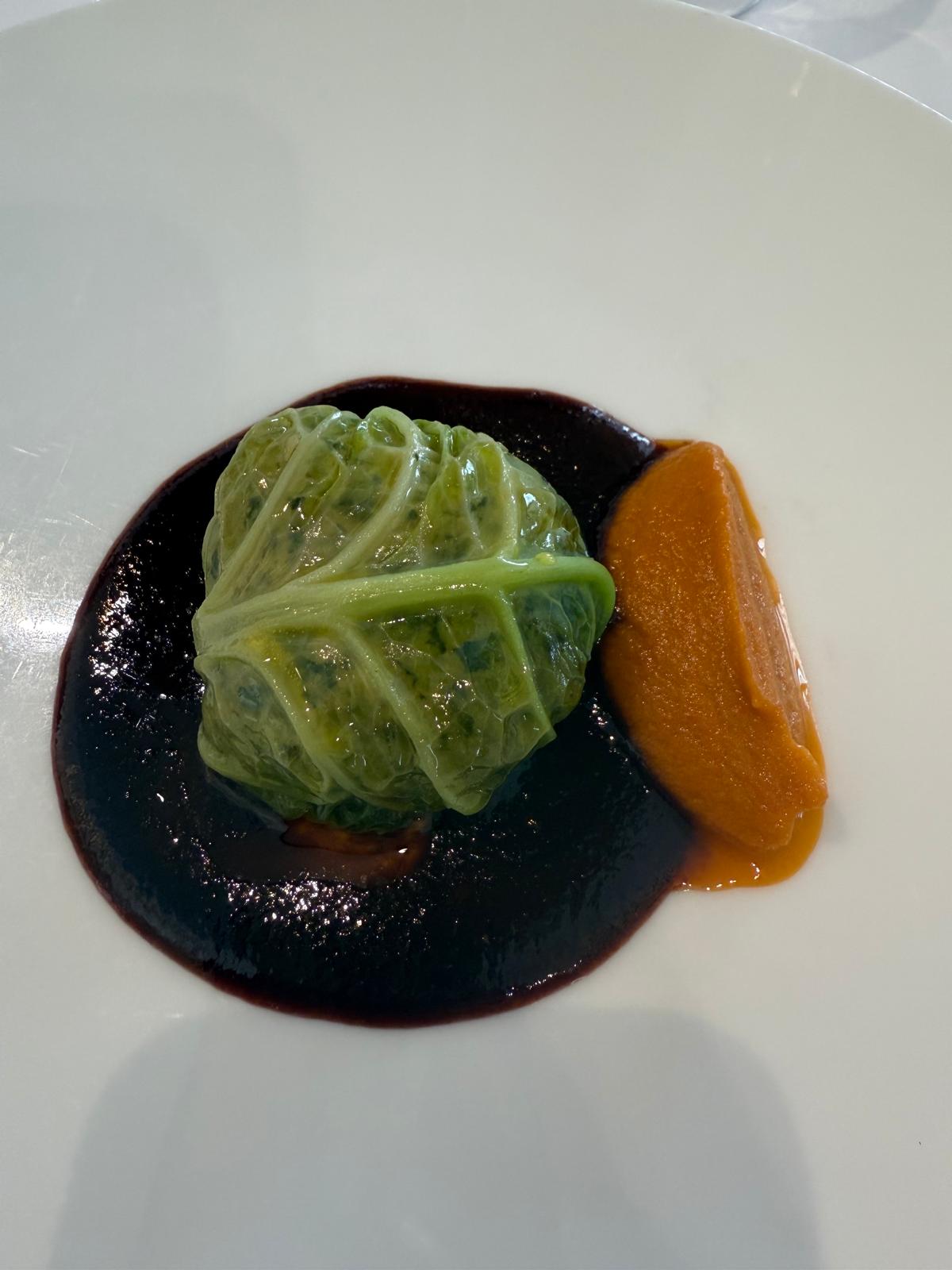
Cabbage with a marchand de vin sauce
A house speciality is beetroot tartare with a “false egg” of soy cream and carrot.
Diehard French traditionalists find the notion of a vegetable-only menu hard to swallow, saying that elaborately presented beetroot, celery and turnips do not match up to slow-cooked meats such as poulet au foin (chicken cooked in hay), which used to be Passard’s speciality.
He acknowledged that the majority of his customers were not French, but he added: “That’s also true for many other three-star restaurants.”

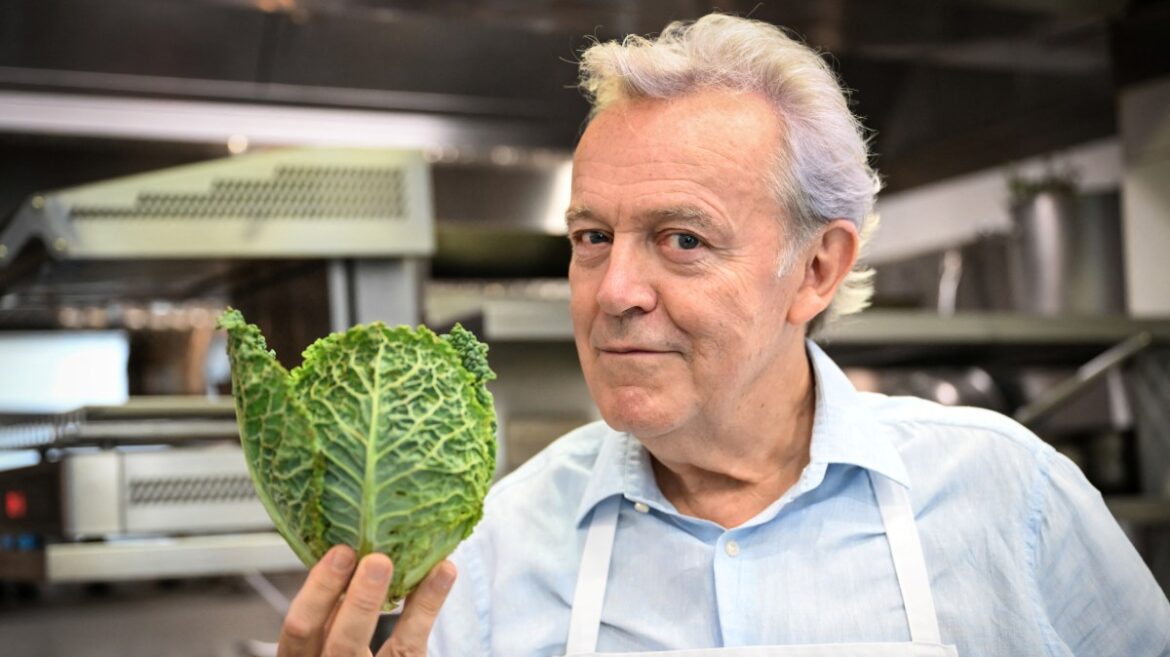
Dining and Cooking